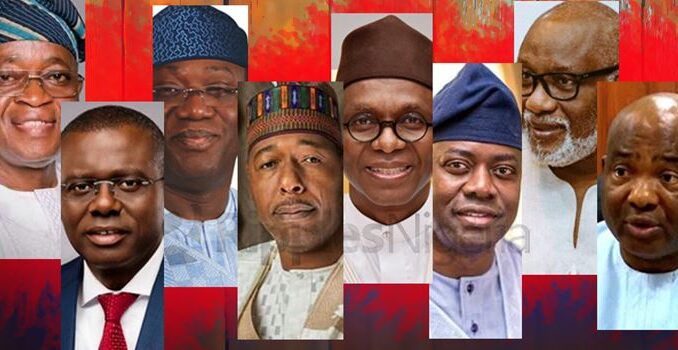
It is probable that most state governments are facing their worst financial crisis yet. If reports from those places are anything to go by, most of them are struggling to repay existing loans and meet essential obligations germane to effective governance.
We recall that the Nigerian National Petroleum Corporation (NNPC) had stirred the hornet’s nest recently when it disclosed that its projected monthly remittance to the federation accounts allocation committee (FAAC) for the month of May will be zero.
This situation is further complicated by the seeming total reliance on federal allocation by the states most of which have very little, if at all, to show in terms of internally generated revenue (IGR). With the announcement by NNPC, it became obvious that the lean times lie ahead not just for the states, because they will be worse hit, but also for the federal government.
Almost in all cases, the state governments rely on Internally Generated Revenue (IGR) proceeds where they exist and the Federation Accounts Allocation Committee (FAAC) for funding while the shortfall is bridged with loans sourced from both external and domestic sources. To prove that revenue shortfall is beginning to manifest, recently, the federal government, directed the salaries committee to review payroll and also review the number of its agencies.
EXCLUSIVE: After Collecting N2.3trn FAAC Allocation In 12 Months: States Still Suffer Infrastructural Decay, Poor Project Funding
Minister of Finance, Budget and National Planning, Mrs Zainab Ahmed, who disclosed this in Abuja also said that the government had approved N13.88trillion budget with a deficit of over N5.6trillion, just as it projected a revenue of N7.98trillion to fund part of the 2021 budget.
Experts have attributed the rising cost of governance and mounting debts in both the federal and states governments as the reason why they are failing to meet their financial obligations. Suffice it to say that the payment of the new minimum wage may be practically impossible for most of the states.
It is instructive to note that data obtained from the Debt Management Office (DMO) last year revealed that the federal government owes N10.8 trillion as foreign debt and N10 trillion in domestic debt, while the states and FCT owe N1.8 trillion as foreign debt and N4.1 trillion as domestic debt. In same period, the states’ debts ballooned to N6 trillion, whereas the total revenue (from FAAC and IGRs) was N3.6 trillion. That puts the debt to IGR of the states at 460 per cent just as debt to total revenue is 170 per cent. Lagos tops the list of 10 states by external debt (2020) with 29 per cent, followed by Kaduna, Edo, Cross Rivers, Gombe, Bauchi, Enugu, Adamawa, Anambra and Osun.
In the opinion of this newspaper, the time for state governors to start thinking like Chief Executive Officers (CEO) of big corporations have come and with it the necessity to explore other sources of revenue to augment existing ones. There is no denying the fact that all states in the country are blessed with human and natural resources which, if properly harnessed, can be sources of revenue. All that is required is a commitment to do the needful to wean themselves off their presently beggarly disposition.
We also suggest that state governments can apply to the federal government for mining leases in their states. For example, Botswana, a small diamond-rich country in Southern Africa, got rich and was able to sustain itself because her leaders were smart enough to invite foreign investors to participate in a mutually beneficial investment arrangement.
Botswana, as a country, did not put in a dime into the arrangement; its mines made up its own equity participation. Today, that country is one of the fastest-growing economies in the world and has been so for decades, mainly on account of its partnership with genuine investors. This Botswana model, we are convinced, with the right attitude, can work for the state governments in Nigeria.
It is gratifying to note that some states are succeeding with agriculture, especially rice cultivation using the Central Bank of Nigeria (CBN) intervention funds. The states must also realise that raising taxes is, in our opinion, a dilatory approach to increasing revenue and solving the liquidity crisis.
Furthermore, the state governments can adopt the public -private – partnership model to solve the infrastructural deficits in the country. That way they will be able to reserve resources that can be deployed in other areas in urgent need.
However, in our view, another way of averting a liquidity crisis in the system is for the government, at all levels, to considerably reduce the cost of governance. The political class which is not a revenue generating institution, must tone down its taste for the proverbial perks of office, if the system was to avert the impending cataclysm.
END

Be the first to comment